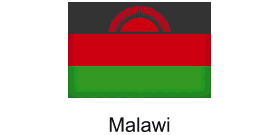Durban's Jewel: 18 Pristine Beaches Reopen, Prioritizing Visitor Safety and Water Quality!

Durban, the vibrant heart of KwaZulu-Natal’s coastline, continues to solidify its reputation as one of South Africa’s most cherished seaside destinations. Boasting golden sandy beaches, the inviting warmth of the Indian Ocean, and a subtropical climate that delivers sunshine almost year-round, Durban consistently attracts both local and international visitors seeking relaxation, adventure, and a rich coastal cultural experience.
In a significant move demonstrating the city’s unwavering commitment to visitor safety and environmental stewardship, the eThekwini Municipality officially announced that as of September 30, 2025, a total of 18 beaches have been declared safe for swimming. This declaration follows meticulous municipal water quality assessments, guaranteeing that each open beach adheres to stringent health and safety standards. This proactive municipal strategy not only safeguards public health but also significantly elevates Durban's standing as a premier destination for leisure and recreation.
To further ensure peace of mind, each of these open beaches is professionally staffed daily by trained lifeguards, operating from 06:00 to 18:30. This consistent presence of skilled personnel is crucial in upholding Durban’s renowned reputation for providing safe, accessible, and enjoyable beach experiences for families, solo travellers, and groups alike. The currently open beaches, each with its unique charm and amenities, include: Point Beach, uMgababa, uShaka Beach, Addington, North Beach, Bay of Plenty, South Beach, Wedge Beach, Battery Beach, Brighton Beach, Pipeline Beach, Toti Main Beach, Westbrook, Anstey's Beach, Thekwini Beach, Laguna Beach, Country Club Beach, and Doonside Beach.
Durban’s magnificent stretches of coastline offer more than just opportunities for swimming. They are internationally recognized for excellent surfing and bodyboarding conditions, and provide the simple, yet profound, pleasure of long, scenic walks along the shore. The city's dynamic beach culture serves as a major drawcard for both experienced water sports enthusiasts and those desiring a tranquil escape from the urban hustle and bustle.
For the broader African travel sector, Durban’s continuous investment in beach safety protocols and rigorous water quality monitoring systems is a powerful unique selling proposition. The city’s proven capability to maintain high standards, even amidst increasing visitor numbers, exemplifies a sustainable tourism management model that other coastal destinations across the continent can emulate. Moreover, the municipality’s commitment to transparent communication regarding beach status fosters vital trust with visitors and industry partners, reinforcing confidence in the destination.
However, the eThekwini Municipality’s vigilance extends to closures when necessary. Currently, five beaches have been temporarily closed due to elevated water contamination levels. These are: Reunion Beach, Winklespruit, mDloti Main Beach, uMhlanga Main Beach, and Bronze Beach. While swimming and water sports are temporarily prohibited at these specific locations, they remain appealing for activities such as sunbathing, jogging, and scenic walks. The municipality has explicitly reassured the public that these beaches will be promptly reopened as soon as water quality parameters improve, underscoring a responsive and responsible approach to environmental stewardship.
Durban’s comprehensive approach to beach management holds particular significance for the African travel industry as it navigates an evolving global landscape. The city’s dedication to safety, robust infrastructure, and environmental health perfectly aligns with contemporary trends in global tourism, where travelers increasingly prioritize destinations that offer both enjoyment and a commitment to well-being. For professionals in the African travel trade, Durban’s model highlights the critical importance of transparent communication, consistent safety updates, and the invaluable role of investing in skilled personnel to elevate the overall visitor experience.
Beyond their recreational value, Durban’s beaches function as vital economic engines, supporting a diverse array of businesses—from hospitality and retail to transport and various cultural attractions. The city’s consistent success in keeping its beaches open and safe directly influences hotel occupancy rates, boosts restaurant patronage, and significantly contributes to the overall vibrancy of the local tourism sector. Looking ahead, Durban’s exemplary model of proactive beach management is poised to become even more indispensable as climate change, urbanisation pressures, and shifting travel patterns introduce new complexities and demands on coastal destinations. For African travel professionals, remaining well-informed about such developments is crucial for adapting business strategies effectively and meeting the evolving expectations of travelers from across the continent and beyond.
In conclusion, Durban’s 18 officially open beaches stand as a powerful testament to the city’s profound dedication to quality, visitor safety, and satisfaction. As the city continues its diligent monitoring and management of its magnificent coastline, it sets an admirable benchmark for other African destinations striving to achieve a harmonious balance between growth and environmental sustainability. For those instrumental in shaping the future of Africa’s dynamic travel industry, Durban’s compelling example offers invaluable insights into resilience, innovation, and the enduring appeal of a meticulously managed seaside escape.
You may also like...
U-20 World Cup Showdown: Flying Eagles Storm Santiago for Epic Argentina Clash!
)
Nigeria's Flying Eagles are set to face Argentina in a FIFA U-20 World Cup Round of 16 match on October 8, 2025. Argenti...
Anthony Joshua's Blockbuster Battle Plans: Fury Showdown Looms, 'Rumble in the Jungle II' Sparks Nigeria Fight Frenzy!

Anthony Joshua is being called to fight in Nigeria for a "Rumble in the Jungle II" in early 2026, fulfilling his dream t...
Rome's MIA Market Explodes with Hot Titles: 'Ancient China of Mars' & More Steal the Show

The MIA Market in Rome, running from October 6-10, is showcasing over 100 international projects across TV series, anima...
Timothée Chalamet's 'Marty Supreme' Wows NYFF: 'Career-Best' Performance Sparks Standing Ovation

Timothée Chalamet's “Marty Supreme,” directed by Josh Safdie, made a critically acclaimed surprise debut at the New York...
Zimbabwe Mourns: Kuwadzana Children's Funeral Unites Nation in Grief

A sombre joint funeral service was held in Harare for three children, Anenyasha Muzanago, Anopaishe Muzanago, and Reynol...
Charlotte Church's shocking new path: £25m fortune gone, embracing a dramatic career shift

Charlotte Church has dramatically transformed her life, moving from a multi-millionaire child star to operating a wellne...
Heartbreak for Sharon Osbourne as Jack reveals devastating update on grief for Ozzy

Sharon Osbourne is struggling intensely with the loss of her husband, Ozzy Osbourne, whose passing has left her world to...
Reality Royalty Crowned! Imisi Victorious in Big Brother Naija Season 10 Finale!

Imisi has been declared the winner of Big Brother Naija's 10/10 edition, securing N150 million, an SUV, and other prizes...



